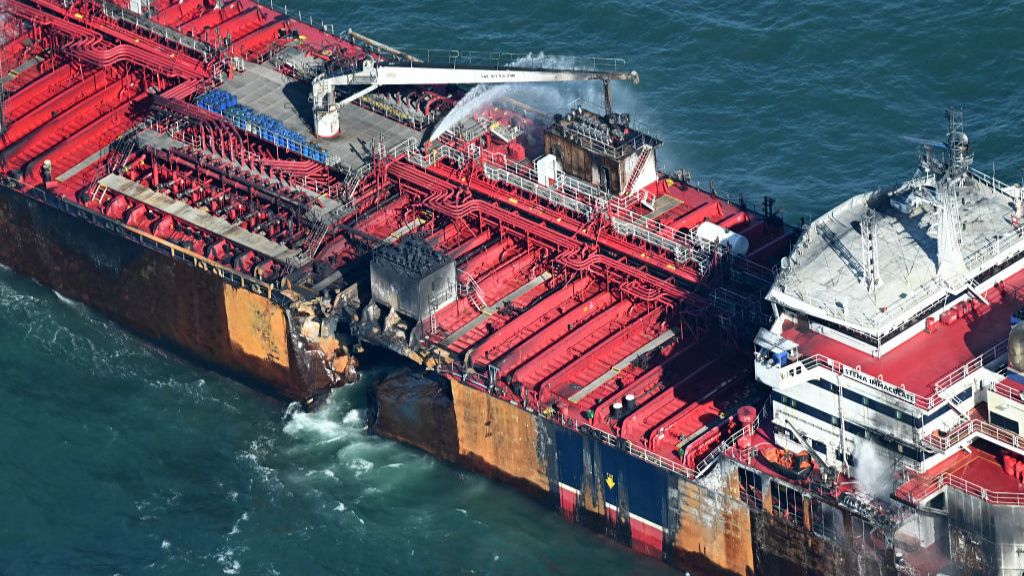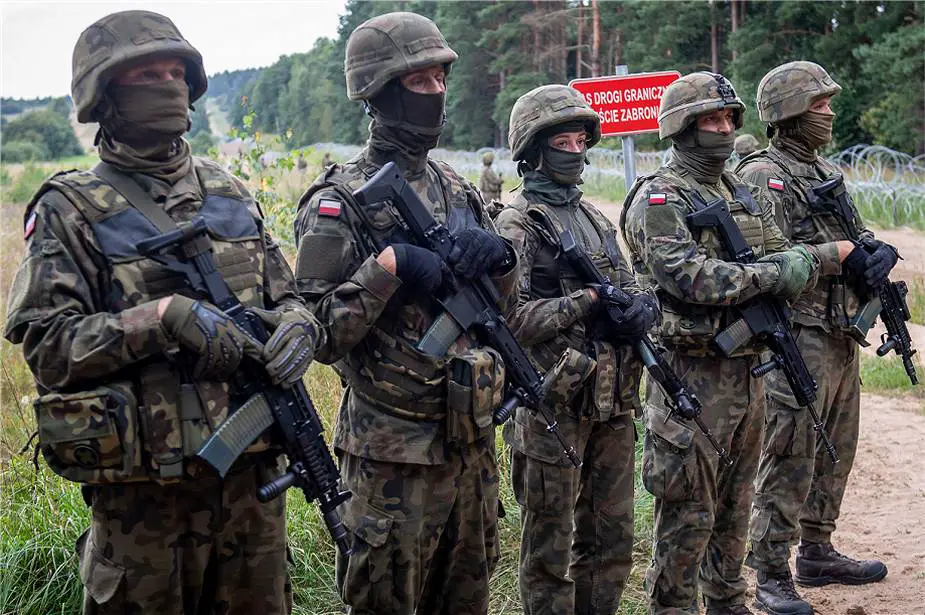The Prime Minister of Poland, Donald Tusk, revealed an extensive plan requiring all adult men in Poland to undergo compulsory military training. Addressing the Sejm, Poland’s parliament, Tusk detailed strategies to enhance national readiness against possible security challenges, highlighting the importance of bolstering the country’s military reserves. The system, anticipated to be completed before year’s end, seeks to equip every adult male with the skills necessary to confront contemporary conflicts.
The declaration underscores Poland’s heightened emphasis on defense and military readiness, especially due to the ongoing conflict in nearby Ukraine. Tusk asserted that enhancing Poland’s military strength is crucial for safeguarding the nation, mentioning the objective to increase Poland’s armed forces, along with reservists, to 500,000 members—over twice their present number.
Developing a more extensive and proficient force
Prime Minister Tusk portrayed the training initiative as a component of a larger approach to boost Poland’s military preparedness. The government plans to execute widespread training schemes to guarantee that men outside the regular military can still become skilled soldiers when necessary. Tusk emphasized the necessity of establishing a reserve force that can effectively respond to possible conflicts.
“We require a force of 500,000, incorporating reservists,” Tusk stated in his address. “With strategic organization, we can guarantee that individuals not engaged in full-time military service are thoroughly trained and ready to protect the nation in times of crisis.”
Although the main emphasis is on training men, Tusk mentioned that women could also participate in military training programs, while noting that warfare is still “primarily the realm of men.” The initiative underscores Poland’s commitment to adjusting its defense strategies in response to changing geopolitical dynamics in Europe.
Military expenditure and global alliances
Poland has pledged to substantially boost its defense budget, dedicating 4.7% of its GDP to military spending this year—the largest share among NATO members. Tusk suggested increasing this amount to 5%, highlighting the government’s dedication to enhancing the country’s defense strengths. Previously, Polish President Andrzej Duda proposed a constitutional amendment to mandate a minimum defense expenditure level of 4% of GDP.
The Polish administration has intensified its military modernization endeavors, securing significant arms agreements with the United States and South Korea. Recent acquisitions consist of 250 M1A2 Abrams battle tanks, 32 F-35 fighter jets, 96 Apache helicopters, and sophisticated missile systems. Furthermore, as part of its wider plan to bolster military power, Poland has obtained K2 tanks and FA-50 light combat aircraft from South Korea.
Tusk’s declaration arises as Poland considers the potential of joining France’s offer to extend its nuclear protection to European partners. While mindful of the consequences of this arrangement, Tusk recognized that having its own nuclear arsenal would bolster Poland’s security. Nonetheless, he remarked that obtaining nuclear weapons would be a prolonged endeavor needing broad agreement.
Tusk’s announcement comes as Poland evaluates the possibility of aligning with France’s proposal to extend its nuclear umbrella to European allies. While cautious about the implications of such an arrangement, Tusk acknowledged that possessing an independent nuclear arsenal would enhance Poland’s security. However, he noted that acquiring nuclear weapons would be a lengthy process requiring widespread consensus.
Demands for changes in international agreement policies
In its defense restructuring, Poland is contemplating exiting international accords that limit specific weapon types. Tusk backed Poland’s departure from the Ottawa Convention, which outlaws antipersonnel landmines, and the Dublin Convention, which bans cluster munitions. These actions would signify a notable change in Poland’s military strategy and demonstrate the government’s readiness to consider more assertive defense tactics.
Poland’s intensified emphasis on military readiness has been spurred by growing worries over regional security in the wake of Russia’s large-scale assault on Ukraine in 2022. For numerous Poles, backing Ukraine and reinforcing their own defenses are viewed as linked priorities. However, recent occurrences, like the halt in U.S. military aid to Ukraine, have heightened concerns regarding Poland’s future security.
Adapting to an evolving security environment
Preparing for a changing security landscape
The war in Ukraine has had a profound impact on defense policies across Europe, and Poland is no exception. Tusk’s government is taking steps to ensure Poland is ready for any potential threats, with military training for civilians forming a central pillar of this effort. The prime minister emphasized that Poland’s security strategy must remain adaptable and proactive in the face of evolving challenges.
Tusk’s plan has sparked interest among ordinary citizens as well. Mirosław Kaznowski, the deputy mayor of Milanówek, a small town near Warsaw, shared stories of residents investing in bomb shelters amid growing concerns about future conflicts. He noted that demand for affordable underground shelters—designed for both homes and businesses—has surged, reflecting widespread unease among the population.
Navigating the delicate interplay of security and diplomacy
A complex balance between security and diplomacy
Moreover, the financial strain of heightened defense budgets has sparked discussions on priorities. Designating 5% of GDP for defense signifies a major financial undertaking, sparking worries about its effects on other public investment areas. Nevertheless, Tusk insists that national security should be the foremost concern given the present geopolitical situation.
Additionally, the economic burden of increased defense spending has prompted debate about priorities. Allocating 5% of GDP to defense represents a significant financial commitment, raising concerns about its impact on other areas of public investment. However, Tusk maintains that national security must take precedence in light of the current geopolitical climate.
Poland’s shifting position in European defense
Poland’s evolving role in European defense
Tusk’s declaration of compulsory military training for men is merely one element of a broader initiative to keep Poland ready for any situation. By modernizing its military, boosting its defense funding, and promoting a culture of resilience among civilians, Poland is establishing itself as a leader in tackling Europe’s security issues.
Tusk’s announcement of mandatory military training for men is just one part of a larger effort to ensure Poland remains prepared for any eventuality. Whether through modernizing its armed forces, increasing its defense budget, or fostering a culture of resilience among civilians, Poland is positioning itself as a leader in addressing Europe’s security challenges.
While the road ahead is fraught with complexities, Poland’s commitment to strengthening its defenses underscores the importance of proactive measures in an increasingly uncertain world. By prioritizing preparedness and adaptability, the nation aims to secure a safer future for its citizens and contribute to the stability of the region.



